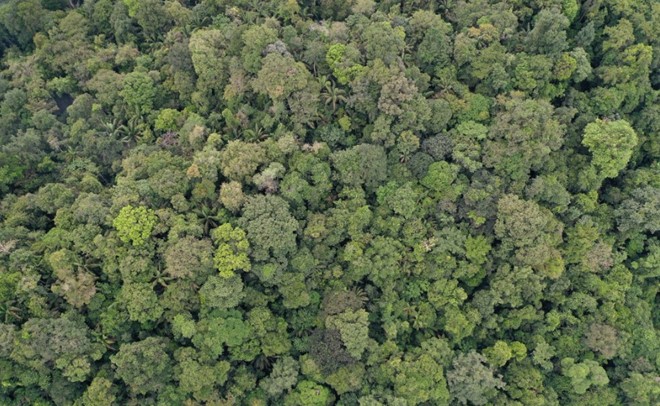
The South American country's environment minister, Susana Muhamad, unveiled the plan last week in New York, saying it would mirror the donor-backed Just Energy Transition Partnerships (JETPs) agreed in recent years with South Africa, Vietnam, Indonesia and Senegal.
"We are on the way to consolidating a donor roundtable that will allow us to achieve an important financial package for the country," Muhamad told journalists on the sidelines of New York Climate Week.
The Colombian government said in a statement that it has been in talks with the UK, Germany, Canada and the European Union – all of which are also key government funders of other JETPs – as potential backers, as well as the Inter-American Development Bank.
Besides clean energy, the plan, which will mobilise a mix of private and public finance, will include funding for nature conservation, particularly seeking investment in ecotourism, sustainable agriculture and ecosystem restoration. Colombia is hosting the COP16 UN summit on nature protection at the end of this month – the first following a global pact to halt and reverse biodiversity loss agreed two years ago.
Colombia's focus on nature in its energy transition plan is a new addition to the JETP model, said Andrés Goméz, head of Latin America campaigns at the Fossil Fuel Non-Proliferation Treaty Initiative, an international nonprofit promoting the phase out of fossil fuels.
"Colombia, as a mega-diverse country, has the opportunity to create new productive economies around that biodiversity," Goméz told Climate Home. "This proposal could be an example for other countries in the Amazon region."
Funds for clean energy
The South American country is one of the first large fossil fuel producers to pledge to wind down its oil and gas production. Last year, Colombia suspended licenses for new oil and gas exploration, which triggered domestic pushback.
Over half of Colombia's export revenue comes from fossil fuels. The government of Gustavo Petro has prioritised reducing fiscal dependence on oil and gas, but this has scared off investors and provided fodder to his critics.
The multi-billion-dollar energy transition investment plan is poised to replace revenues from the fossil fuel industry with greener sources of income. But while some details have been made public, most of the plan is still unknown.
The investment portfolio announced by minister Muhamad includes $4 billion for nature tourism, $3.5 billion for sustainable agriculture, $4 billion for climate change adaptation, $8.5 billion for ecosystem restoration and conservation, and $1 billion for institutional capacity.
The biggest chunk – $14.5 billion – will go to fund Colombia's energy transition and expansion of renewables, which currently account for about a third of the country's total energy supply and generate 75% of its electricity, according to the International Energy Agency.
In particular, the plan will also have to address Colombia's coal industry – as the country is the largest producer of the polluting fuel in Latin America. Authorities will have to figure out what to do with retired coal-power plants and mining infrastructure, as well as including the coal sector's workforce of more than 130,000 in the shift to clean energy, Gómez said.
Debt swaps
One of the biggest challenges in implementing the proposal will be to avoid costly loans, Gómez said, as Colombia is already grappling with high debt levels. Instead, the government has suggested the use of other financial mechanisms such as debt swaps, he added.
Debt swaps for nature or climate involve creditors foregoing payments on loans with the proceeds instead being spent on environmental projects in the borrowing country. President Petro has mentioned them as a financial option to fund protection of the Amazon rainforest.
The JETP process has so far been dogged by criticism that the partnerships mainly involve loans for energy transition – albeit usually on cheaper terms than the market. With Vietnam, for example, G7 countries offered a $15.5-billion investment package, of which only 2% of funds were grants, leaving the country reluctant to accept the offer.
Minister Muhamad said Colombia is still at the stage of raising funds and aims to announce new investments in its plan at the biodiversity COP16, taking place in the city of Cali from October 21-November 1.
"Colombia is leading the discussion on how to make a very difficult transition – a truly just climate and energy transition. This is a fundamental step forward," she said.
(Reporting by Sebastian Rodriguez; editing by Megan Rowling)
Source: Climate Change News – URL: https://www.climatechangenews.com/2024/10/01/colombia-adds-nature-to-the-mix-with-its-40-billion-energy-transition-plan/